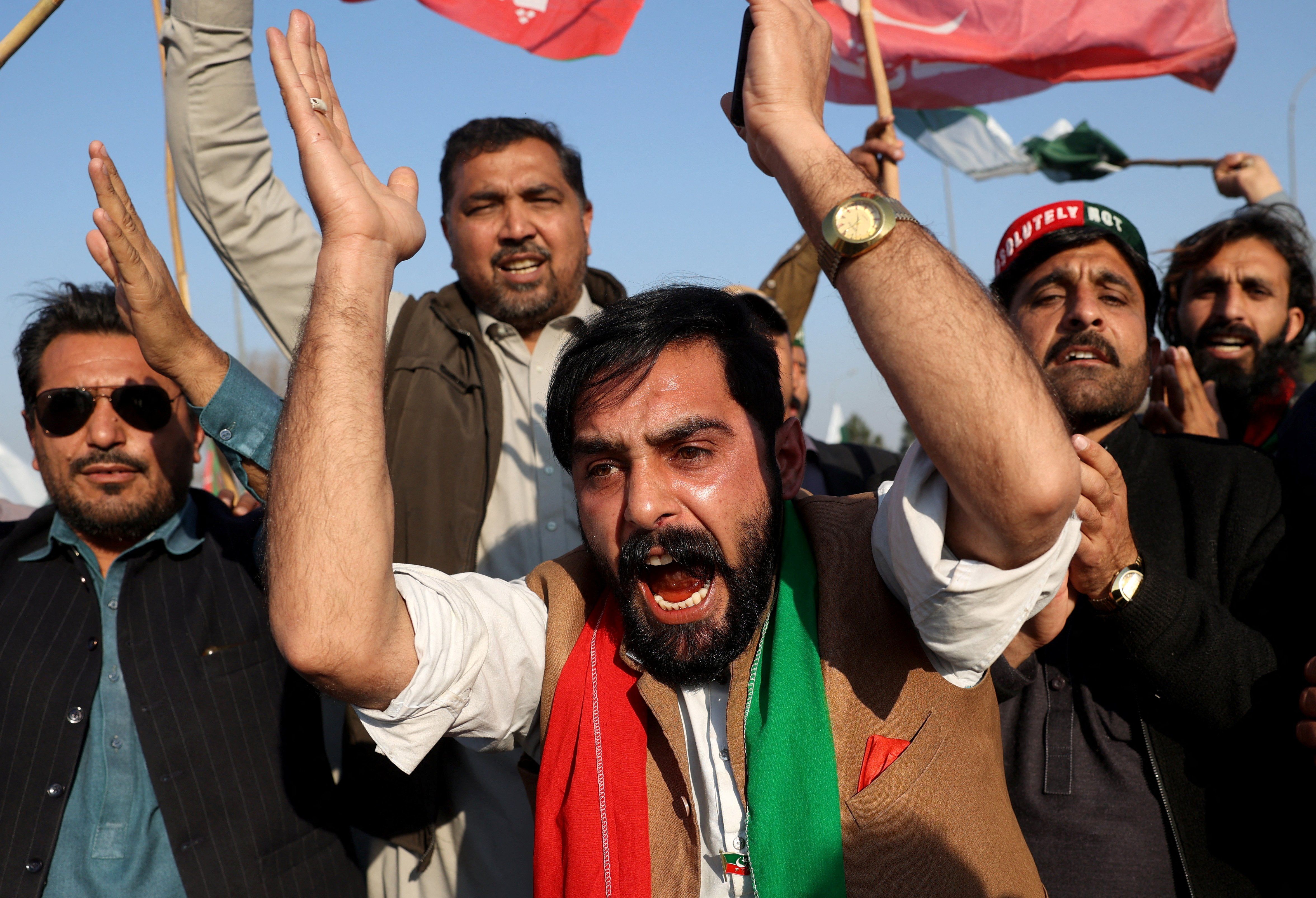Candidates affiliated with imprisoned former Prime Minister Imran Khan won the most votes in last week’s election in Pakistan, but no single party won a clear majority, so a coalition government had to be formed.
On Tuesday, the Pakistan Muslim League-Nawaz, aka PLMN, and the Pakistan People’s Party, or PPP, announced that they had agreed to form a coalition government with two smaller, regional parties.
And Khan? Having been removed from office in 2022 after losing the support of Pakistan’s military, Khan knows all too well how much the country’s army has worked to sideline him in this election.
While independent candidates largely aligned with his party won the most seats, the newly formed coalition means Khan’s Pakistan Tehreek-e-Insaf is shut out.
Who will lead? The new coalition said that PLMN President Shahbaz Sharif – an ex-prime minister and the younger brother of former Prime Minister Nawaz Sharif – will be the nominee for prime minister. The presidency is expected to go to the PPP’s Asif Ali Zardari.
Buckle up. While the military is likely to wield its considerable influence to help ensure the governing coalition doesn’t collapse, the parties involved are generally considered rivals, so it may be difficult to keep them unified.
Pakistani politics are notoriously volatile — the country has never seen a prime minister complete a full five-year term in its 77-year history as an independent nation.
